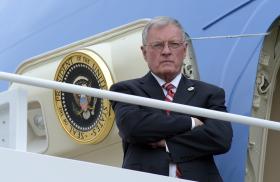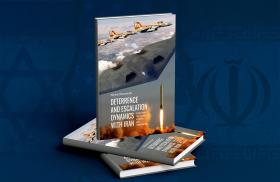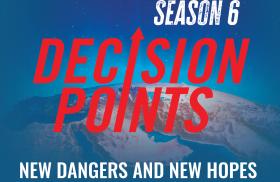
- Policy Analysis
- PolicyWatch 4125
An Algeria-Morocco “Peace Deal”? Managing U.S. Diplomacy and Expectations

The Trump administration has been alluding to a potential breakthrough between the two regional rivals, but striking near-term deals on issues like Western Sahara and MINURSO would only be the first step in a necessarily long-term U.S. diplomatic effort.
In a recent 60 Minutes interview, U.S. Special Envoy Steve Witkoff noted that his team hopes to achieve a “peace deal” between Morocco and Algeria within sixty days. Although the two countries have very poor relations, they are not at war, so what might such a deal look like?
Relations at a Historic Low—But Not to the Point of War
Separated by a closed border since 1994, Morocco and Algeria have seen their relations plummet to new lows over the past few years. The breaking point came in August 2021, when Algiers severed diplomatic ties and accused Morocco of “hostile actions” such as allegedly supporting the Kabylia separatist movement and allowing Israeli Foreign Minister Yair Lapid to criticize Algerian foreign policy during his visit to Rabat that month.
The diplomatic ruptures and mutual recriminations escalated further in 2022. Algeria suspended operation of the twenty-year-old gas pipeline to Morocco, cutting off a vital energy supply and spurring Rabat to accuse its neighbor of fueling regional instability. Despite the heated rhetoric and reprisals, however, both countries have avoided military confrontation.
Resolving Western Sahara Is Necessary—But Not Sufficient
Although the Western Sahara dispute remains a central point in these tensions, it did not cause them. Decades ago, Rabat supported Algeria’s struggle for independence from France while at the same time building up its claim that the 100,000-square-mile coastal territory called Western Sahara was part of the Moroccan Kingdom. By the time of Morocco’s 1975 “Great March” into Western Sahara—the majority of which it still controls—an opposing movement for self-determination had formed among the territory’s indigenous Sahrawi people, led by the armed Polisario Front. Algeria soon backed the Polisario and has maintained that position ever since, making resolution of the Western Sahara dispute a prerequisite for any lasting rapprochement between the two countries.
Witkoff’s remarks come just as the UN Security Council is preparing to vote on renewing the mandate of the Mission for the Referendum in Western Sahara (MINURSO). As the current penholder on this issue, the United States has influence over the dispute’s political evolution. One can therefore assume that Witkoff was hinting at a UN breakthrough on Western Sahara by the end of this month (see below), upon which Washington will aim to build a broader “peace.”
Yet any agreement that includes hastily ending MINURSO would not bring peace to the area, as discussed in a previous PolicyWatch. The force still plays a role in monitoring the ceasefire between Morocco and the Polisario Front and should be usefully leveraged during any transition process.
More important, U.S. officials should understand that the Algeria-Morocco rivalry goes well beyond Western Sahara, reflecting broader regional competition. President Abdelmadjid Tebboune recently said as much in a speech rejecting alleged foreign attempts to repair the years-long breach. Indeed, the rivalry can be traced all the way back to Algeria’s independence, which was quickly followed by a border war in 1963-64 that ended in military stalemate. Algiers has also used its own experience with achieving independence to promote the issue of Sahrawi self-determination on the international stage. Tensions with Morocco have even spilled into the cultural sphere, which in turn has deepened divisions between the two countries’ civil societies and younger generations—including within their diasporas, which once shared a collective “Maghrebi” identity.
Recommendations
The United States is well-positioned to help bridge the gap between Algeria and Morocco. Its relations with Rabat have strengthened significantly in recent years, marked by expanded military cooperation, deepened economic ties, and U.S. recognition of the kingdom’s sovereignty over Western Sahara in December 2020. Washington has built a solid partnership with Algiers as well, based on economic and security cooperation. To jumpstart a gradual reset of Algeria-Morocco relations, the Trump administration should consider the following steps:
Make effective use of the upcoming MINURSO renewal. The leaked draft resolution under discussion at the Security Council confirms that this will not be business as usual, indicating that the next MINURSO mandate will explicitly frame future negotiations around Morocco’s 2007 autonomy proposal (see below). If this resolution is to facilitate the wider goal of calming relations between Rabat and Algiers, U.S. officials will need to take advantage of Algeria’s presence on the Security Council to ensure that its views—presumably coordinated with the Polisario Front—are taken into consideration. In turn, Algerian authorities need to show the necessary pragmatism to get out of the deadlock. Algiers has not yet officially responded to Witkoff’s comments, but indications so far suggest skepticism. Several media outlets close to the government’s position have used their front pages to state that Algeria will not vote for a resolution that only mentions Morocco’s autonomy plan.
Washington should also encourage Rabat to articulate its plan more clearly. Proposed in 2007 but with very little detail, the autonomy plan has been recognized by an increasing number of countries as the most likely (or only) basis for ending the Western Sahara dispute. Ultimately, any viable resolution will require Moroccan cooperation on achieving “genuine autonomy” for the territory, as Secretary of State Marco Rubio put it in April. Yet most Security Council members will not endorse a resolution centered around the 2007 plan until its details are spelled out. On October 21, the Polisario announced that it had submitted its own expanded peace proposal to Secretary-General Antonio Guterres, suggesting that Washington’s renewed interest in resolving the dispute may be motivating other actors to change their calculus. (The Polisario would reportedly now accept Morocco’s autonomy plan as one of the options to be negotiated, whereas it had previously conditioned talks on just two options: independence or integration.)
In the short term, focus on managing expectations and restoring trust. Even if Washington can succeed in the difficult task of brokering a reframed, consensual MINURSO resolution—a big if—convincing Rabat and Algiers to put aside their differences will require much more work with both governments. Their mutual mistrust runs deep; for instance, Morocco has gone so far as to accuse Algeria of aligning with Iran to support the Polisario. Hence, simply reestablishing direct communication would be an accomplishment. Steering them back to the negotiating table—and, hopefully, back to the less-hostile status quo they managed before the 2021 breach—would go a long way toward easing tensions.
In the longer term, plan for a consistent U.S. role focused on crafting useful incentives. Given the rivalry’s complexity, promoting a wider rapprochement between Algeria and Morocco will likely require dedicated, high-level engagement from the U.S. government, as well as delicate balancing of Washington’s bilateral relations with each country. The Trump administration could begin this process by incentivizing them to take relatively modest initial steps, such as avoiding hostile public statements, resuming direct commercial flights, and even reopening border crossings. To encourage Morocco, Washington could offer to strongly support the development of Western Sahara; for Algeria, it could offer enhanced economic and security cooperation.
Of course, overcoming decades of strife and closed borders in a mere two months is a tall order, so the Trump administration should be prepared for sustained engagement with all stakeholders on a range of issues. The potential results are well worth the effort. Ending the tensions and creating a format for communication between Morocco and Algeria—and, in the longer run, possibly fostering cooperation on matters of mutual interest—would bring several benefits to the region, as well as opportunities for future U.S. business deals. The Maghreb remains one of the world’s least economically integrated regions in large part because of the frozen relations between its two biggest economies. Reopening the door to regional cooperation could help all Maghrebis by improving opportunities for trade, responsible water management, and more.
Algiers and Rabat are also mutually concerned about instability in the neighboring Sahel region. Both have significant counterterrorism capabilities to contribute, so encouraging them to cooperate with Washington—and each other—could go a long way toward stabilizing the situation to the south.
Sabina Henneberg is a senior fellow at The Washington Institute and director of its Junior Research Program. Souhire Medini is a visiting fellow at the Institute, in residence from the French Ministry for Europe and Foreign Affairs.




